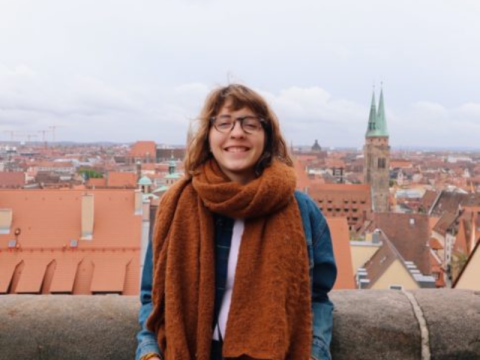Importance of Protesting with SisterSong
When I initially applied for and eventually was accepted into the Feminist Summer Internship Program with SisterSong at the beginning of March, I did not expect to be isolated in my room in New Orleans. I imagined myself searching Facebook for housing recommendations in Atlanta and finding a new home base at the SisterSong motherhouse. While the remote internship has proven to be challenging for a number of reasons, including managing my motivation and mental health, I am very privileged to be working for such a foundational organization during this pandemic, because if I have learned anything during the first two weeks of this internship, it is that reproductive justice is more important than ever.
Reproductive justice is a framework that was founded by Black women and women of color in response to the need to advocate not only for reproductive rights but also for social justice and human rights. These women recognized the limitations of white, mainstream feminists’ fight for choice and abortion in the absence of struggling for the right to have children and the right to parent one’s children in safe and healthy communities without fear of individual and state-enacted violence. It is out of this framework that SisterSong: National Women of Color Reproductive Justice Collective was born and continues to organize against reproductive and racial oppression.
In a racist world where the pandemic, police, and people are disproportionately killing Black people, including Ahmaud Arbery, Breonna Taylor, George Floyd, Tony McDade, Regis Korchinski-Paquet, and Nina Pop, Black men, women, and trans folx are not ensured safe environments to raise their children and families. These recent events, alongside a history of systemic oppression, demonstrate that Black people cannot freely jog, sleep, drive, or exist without fear of violence enact towards themselves, their children, or their loved ones. In this way, police brutality and all violence enacted against Black people is a reproductive justice issue, and justice must be guaranteed for both this and all future generations of Black, Indigenous, and people of color.
The current world that we live in has shown me as a white woman the absolute need for white people to both reflect on the ways that they have been socialized to believe in white supremacy and to interrogate the instances in which they have acted on these beliefs. We as white people have a lot of work to do if we are going to challenge our internalized racial superiority and work in solidarity with Black folx to dismantle racism. I am appreciative that I am able to this work with the staff of SisterSong and learn with and from them as the organization fights for reproductive and racial justice.

